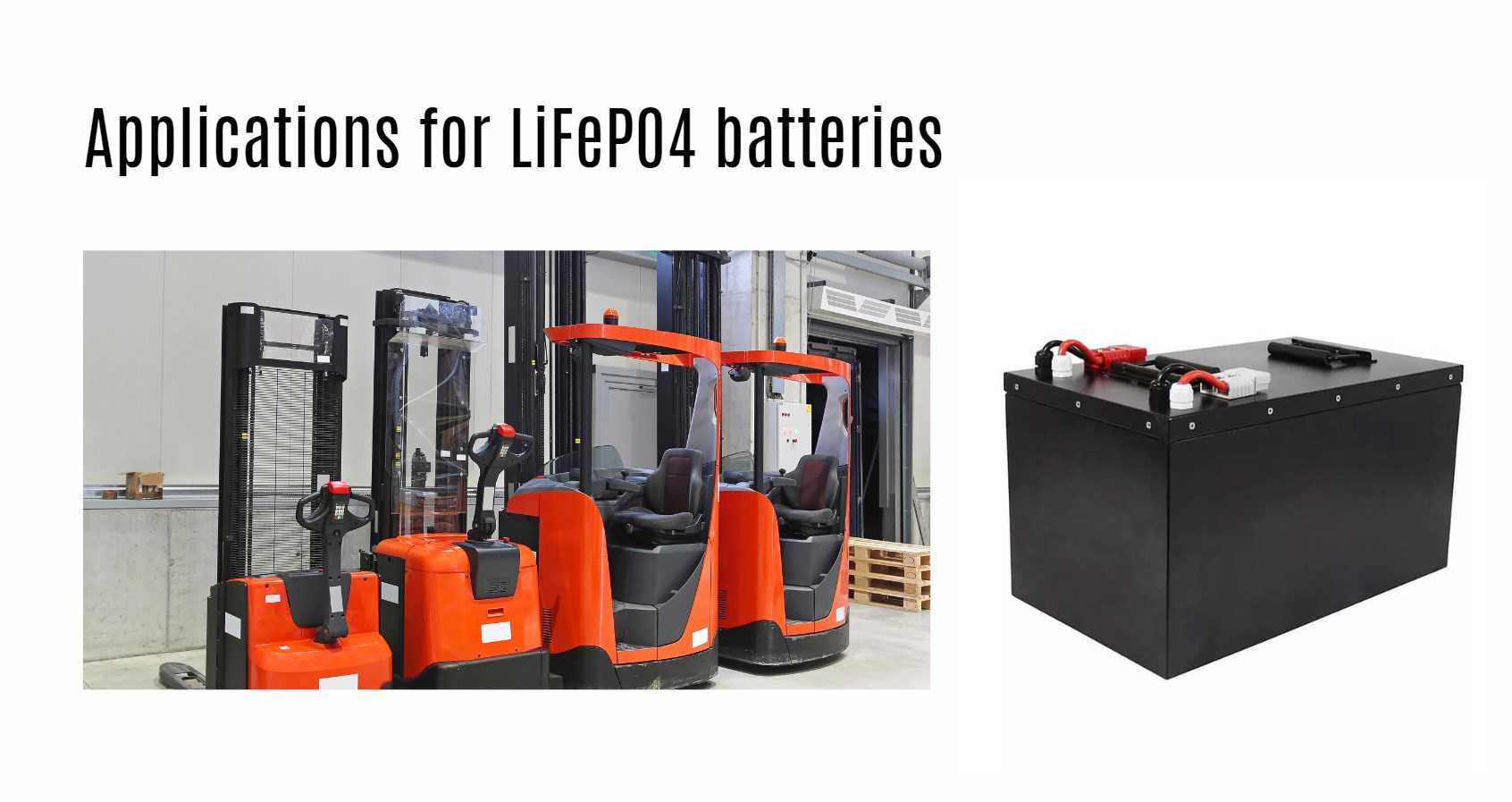Energy storage has become a hot topic in recent years due to the increasing demand for renewable energy sources. As solar and wind power continue to gain popularity, so does the need for efficient and reliable batteries. Enter LiFePO4 batteries – the next big thing in energy storage that is rapidly gaining attention from homeowners, businesses, and even governments around the world. In this blog post, we will delve into what makes LiFePO4 batteries unique, their benefits and drawbacks, applications across various industries, how to choose the right battery for your needs, and more! So sit tight as we explore this exciting breakthrough in energy technology!
What are LiFePO4 batteries?
LiFePO4 batteries, also known as Lithium Iron Phosphate Batteries, are a type of rechargeable battery that have been around since the 1990s. They are characterized by their high energy density and long lifespan compared to other types of lithium-ion batteries. The unique chemistry of LiFePO4 batteries includes an iron phosphate cathode and a carbon-based anode.
One of the key benefits of LiFePO4 batteries is their safety. Unlike other lithium-ion batteries, they do not contain volatile chemicals that can cause explosions or fires if damaged or overheated. Additionally, they are considered more environmentally friendly due to the absence of toxic metals such as lead and cadmium in their construction.
Another advantage of LiFePO4 batteries is their ability to withstand extreme temperatures without compromising performance or safety. This makes them ideal for use in harsh environments like marine applications or solar power systems located in areas with fluctuating temperatures.
In terms of cost-effectiveness, LiFePO4 batteries may require a higher upfront investment than traditional lead-acid batteries; however, they offer significantly longer lifespans which translates into lower lifetime costs over time.
LiFePO4 technology has emerged as a viable option for energy storage needs across various industries due to its many advantages over conventional battery technologies.
Benefits of LiFePO4 batteries
LiFePO4 batteries, also known as Lithium Iron Phosphate batteries, have gained significant attention in recent years due to their various benefits. Here are some of the top advantages of using LiFePO4 batteries:
Firstly, these batteries are safer than other lithium-ion batteries because they have a stable chemistry that does not produce heat or catch fire easily. This makes them ideal for applications where safety is a top priority.
Secondly, LiFePO4 batteries have an incredibly long lifespan compared to traditional lead-acid or nickel-cadmium batteries. They can last up to ten years with minimal maintenance and without losing their capacity over time.
Thirdly, LiFePO4 batteries offer high energy density which means that they can store more energy in less space compared to other battery technologies. This makes them perfect for use in electric vehicles and portable devices where size and weight matter.
LiFePO4 batteries are environmentally friendly since they do not contain toxic chemicals such as lead or cadmium found in traditional battery chemistries. They are also recyclable making them sustainable for future generations.
The benefits of LiFePO4 make it a promising technology for renewable energy storage and mobility solutions while ensuring safety and sustainability at the same time.
Drawbacks of LiFePO4 batteries
Although LiFePO4 batteries have numerous benefits, they also come with some drawbacks that should be considered before making a purchase decision.
One of the main disadvantages is their lower energy density compared to other types of lithium-ion batteries. This means that LiFePO4 batteries require more space and weight to store the same amount of energy as other battery technologies.
Another drawback is their higher upfront cost compared to traditional lead-acid batteries. While this cost may be offset by longer lifespan and reduced maintenance costs in certain applications, it can still be a barrier for some users.
LiFePO4 batteries also have a slower charging rate than other lithium-ion chemistries, which can limit their usefulness in applications where rapid charging is critical.
While they are generally safer than other types of lithium-ion batteries due to their stable chemical structure, LiFePO4 cells can still experience thermal runaway under extreme conditions such as short circuits or overcharging.
While there are some limitations associated with LiFePO4 batteries, they remain an attractive option for many applications due to their high cycle life and safety advantages.
Applications for LiFePO4 batteries
LiFePO4 batteries have become increasingly popular due to their many benefits and advantages over other types of batteries. As a result, they are being used in a wide range of applications.
One common application for LiFePO4 batteries is in electric vehicles. These batteries have high energy density, which makes them ideal for powering electric cars and buses. They also have a long lifespan and can tolerate high charging rates, making them an excellent choice for this type of application.
Another area where LiFePO4 batteries are being widely used is in renewable energy systems such as solar panels or wind turbines. These systems require reliable energy storage solutions that can store excess power generated during the day or when winds are strong, and then release it during periods of low production. The stable voltage output from LiFePO4 cells makes them perfect for this job.
Additionally, portable electronic devices like laptops, mobile phones, cameras, etc., also benefit from using these types of rechargeable lithium-ion battery packs because they’re lightweight yet powerful enough to get the job done without weighing down your bag too much.
In summary, it’s clear that there are multiple ways that LiFePO4 batteries can be utilized across industries- ranging from transportation to home electronics – so why not consider incorporating one into your next project today?

How to choose the right LiFePO4 battery
When it comes to choosing the right LiFePO4 battery, there are a few factors that you need to keep in mind. First and foremost, consider your power storage needs. How much energy will you need to store and for how long? This will help determine the size of the battery pack you require.
Another important consideration is the voltage of the battery. Different applications may require different voltage ranges, so make sure you choose a battery with an appropriate voltage level.
The cycle life of a LiFePO4 battery is also an essential factor to consider when making your selection. This refers to how many times the battery can be charged and discharged before its performance starts degrading. Higher-quality batteries typically have longer cycle lives than lower-quality ones.
Don’t forget about safety features like overcharge protection or temperature control systems which can prevent damage or even fire hazards from occurring during use.
By taking into account these considerations when selecting your LiFePO4 battery, you’ll ensure that you’re getting one that meets your specific energy storage needs while also providing reliable performance and safety features.
Conclusion
To sum it up, LiFePO4 batteries are the next big thing in energy storage. They offer numerous benefits such as longer lifespan, better safety features, and higher energy density compared to traditional lead-acid batteries. Though they may have some drawbacks including initial cost and lower discharge rates, their advantages make them a worthwhile investment for those seeking reliable and efficient power solutions.
LiFePO4 batteries have diverse applications from powering electric vehicles to providing backup power for homes and businesses. It’s important to choose the right battery based on your specific needs, considering factors like voltage requirements, capacity needs, and charging rates.
With advancements in technology leading to more affordable prices and increased accessibility of LiFePO4 batteries, we can expect these innovative energy storage solutions to continue gaining popularity in the years ahead. As we move towards a cleaner and sustainable future powered by renewable energy sources such as solar or wind power systems – reliable yet eco-friendly energy storage technologies like LiFePO4 will undoubtedly prove indispensable!




